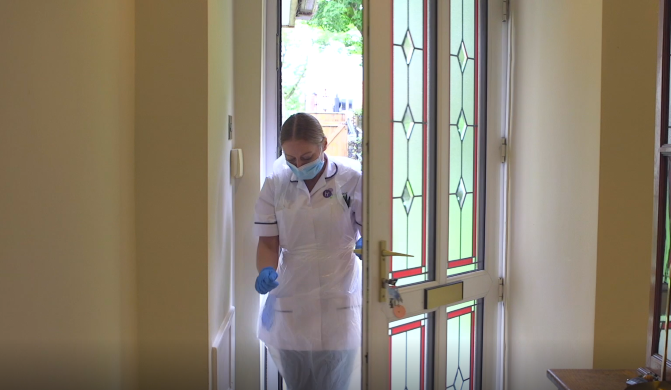Being a carer or caring for a loved one can be an emotionally demanding job at times and can feel nothing short of overwhelming. Carer burnout can feel like an all encompassing emotion and it can be hard to recognise that this is what you are actually feeling. The best way to avoid burnout is to be able to recognise early on what is going on and then it can be helped before it has a chance to worsen. We want to help you recognise these symptoms if they begin to happen to you and offer help and guidance on how to feel better.
What is burnout?
Job burnout is a specific type of work related stress that can quickly become overwhelming to the person feeling it.
‘A state of physical or emotional exhaustion that also involves a sense of reduced accomplishment and loss of personal identity’
When you work in an industry such as care, it can sometimes feel demanding and leave you exhausted long after your shift has finished.

Signs of burnout
There are a few things you can look out for in order to recognise the signs of burnout early.
- Feeling constantly exhausted even after resting
- Feeling helpless
- Uncharacteristic outbursts
- Irritable and impatient
- Losing interest in hobbies
- Difficulty relaxing
When feeling these emotions, regaining balance within your life is such an important step in beginning to feel better. Acknowledging these feelings and taking time to understand them when they arise can be the most important step into taking that action into feeling better. Seeking support from those around you is also highly recommended and can ease the pressure you are feeling.
The causes of burnout can be down to the individual and of course regardless of the reason the feelings are still valid. Here are some potential causes behind carer burnout in particular:
- Providing continual care for someone who has a difficulty to show gratitude for their care
- Feelings of being alone or deserted by family, a partner or care services
- Feeling worried about being able to cope with little support.
- Reluctant or unable to accept help from others / unwilling to seek out help from others
- Feeling overwhelmed by the level of responsibility when caring for a loved one
We want to offer some advice on how to cope with feelings related to burnout in a healthy manner.
Seek Support From Those Around You
Something as simple as being able to talk to those around you can really help to ease stress. Whether you talk to a loved one or from your colleagues/management about how you are feeling, it all helps. At Lifestyle we pride ourselves with being approachable and the support we have on offer for people who may be struggling.
Work On Your Physical Health
Often when we hear this, we hear ‘doing exercise will fix your health’ and when you feel exhausted, physical activity is the last thing you want to do. However, working on your physical health can mean a wide range of things.
Making sure you get enough rest each day is such an important first step, as well as ensuring that you are eating enough and that your diet is healthy. Once these things have been fixed, then you can start to consider doing physical activity and working exercise – however low intensity – into your day. Something as simple as a short walk can help tremendously.
Try New Things
With feeling burnout, you can often start to feel stuck. A great way to overcome this is to try new things and engage in things that you hadn’t done previously. Learn new hobbies and finding new interests either alone or with your patient, even things as simple as trying new board games or learning a new skill.
Set Achievable Goals
Even small goals that involve allowing yourself time to yourself such as allowing 30 minutes every day to read or listen to music and relax. Taking some time to write down how you are feeling can also be a good way to release any pent up emotions that you don’t feel comfortable saying out loud to others.
Feeling burnout is not something that you should feel ashamed about and asking for the help you need is an important step towards feeling better. We hope that this can help with some guidance on where to start, or how to recognise any early signs and avoiding carer burnout.





